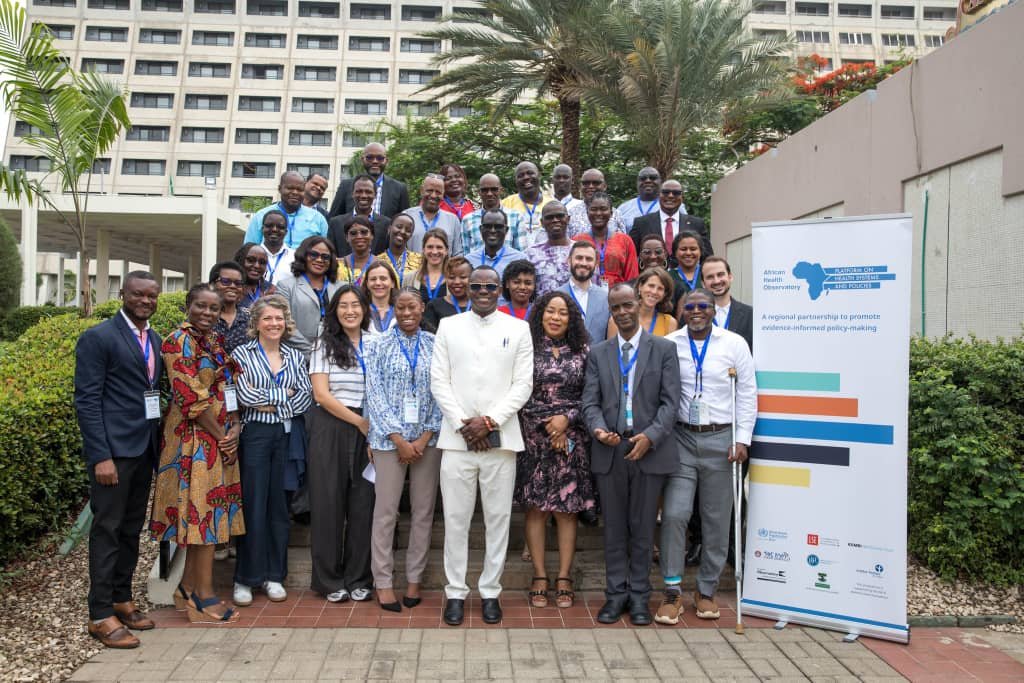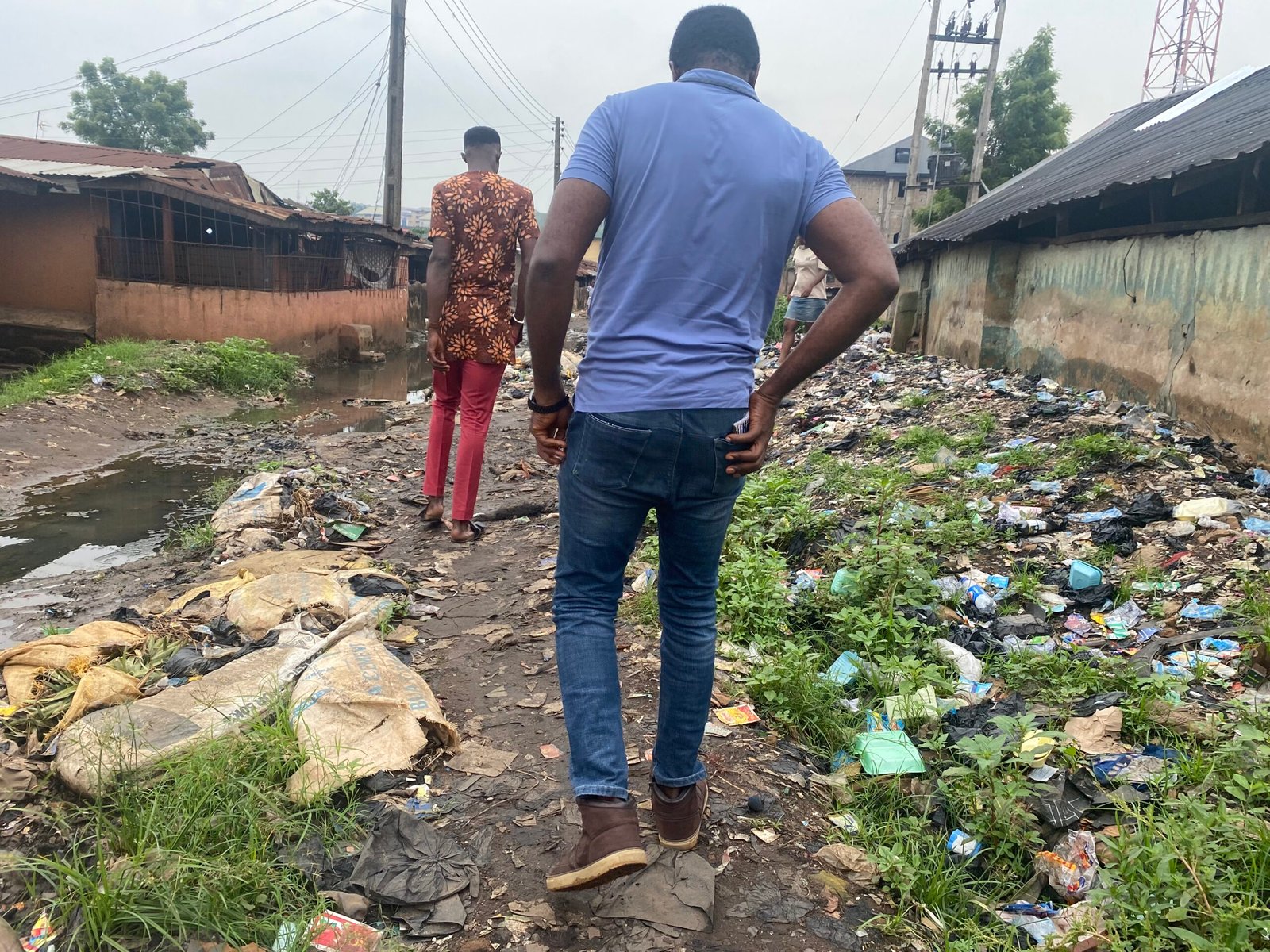Primary Health Centres in Nigeria are becoming responsive to boys’ sexual health: early success story of an ongoing intervention
By Joy Ozughalu, Irene Eze, & Chinyere Mbachu
“In the quiet corners of Primary Healthcare Centres in these communities, where whispers sometimes replace bold requests, condoms find their way into the hands of rightful young seekers. The request was “Bulletproof” or if you like “Vitamin C” and the response – Condoms? Condoms serve as more than mere contraceptives—they symbolise a bridge between vulnerability and empowerment, health and illness. As health care workers continue in their roles with dedicated efforts, they remind us that sometimes, a playful nickname can change [saves] lives.”- Authors’ musings
In one of the communities in Ebonyi State where the Health Policy Research Group (HPRG), University of Nigeria is implementing a project on Sexual and Reproductive Health Rights (SRHR) and services for adolescents, a new trend is emerging, involving young boys who now engage health workers to talk about their sexual health.
Prior to the intervention led by HPRG’s SRHR project, boys felt they did not need to visit the health centres, despite being largely at risk of harmful sexual consequences such as sexually transmitted diseases (STDs) and even responsible for several unwanted pregnancies. As commonly observed, girls have always been the focus of SRH interventions, with little or no attention to the boys. The consequence of this one-sidedness is that we have had compliant girls who end up sexually battered by non-compliant boys. We report in this blog the SRHR successes we are recording by working with boys.
Boys say, ‘rather than being irresponsible in secret, I can be responsible by speaking up.’
The discreet sexual activities of young boys in communities are well-known and problematic. An avenue for boys to speak about issues relating to their sexual health is very important. Our intervention has stimulated consciousness among boys in the communities where we work. Some of the boys now visit health facilities to share concerns about their sexual health needs, and some bolder ones try to seek access to condoms, demonstrating their consciousness around protective sex.
However, instead of the boys making straightforward requests, they employ an array of nicknames for condoms. These nicknames serve as both a verbal disguise for condoms and a way to break the ice, bridging the gap between embarrassment and necessity. Some of these nicknames include “Raincoats”, Bulletproof”, “Rubber”, “CD”, “Tarpaulin”, “Vitamin C”, and “Chewing gum” (which they have localized as ‘chingum’).
Each nickname carries a hint of humour, making the conversation less clinical and more relatable. It is a linguistic dance—a delicate balance between discretion and openness. Despite improved knowledge and actions towards SRHR among boys, many have remained nervous with such requests, and they always want health workers close to them while making their nick-named requests for condoms or talking about their sexual concerns.
Early Insights from our Community Inclusive Gender-Transformative Approaches (GTA)
Our interventions are gender-transformative in principle and practice. By gender-transformative approach, we mean seeing both boys and girls as equals and deserving of help. We underscore the SRH needs of different gender, including the barriers they face, and we develop evidence-informed responses.
The training of health workers and community leaders in the communities where we work relies on a gender-transformative approach, which has now made these stakeholders less judgmental and open to conversations with boys about their sexual health. Here are some early insights we are coming to understand from this important work:
-
Society considers it taboo for boys to come out openly with their sexual needs. However, with organised SRHR intervention targeting boys, boys attempt to navigate this minefield using playful postures. It is a way for them to say, “I need protection, but let’s keep it light.”
-
Boys who come to health facilities to discuss their sexual concerns with health workers or to request condoms do so based on trust in the health workers. They will be disappointed if any of the health workers exposes them to their families or the public and they may become discreet with their sexual concerns going forward.
-
Boys residing in communities where houses are closely packed are very mindful of reputational damage. Health workers in such communities will have to be very mindful not to undermine the trust such boys have in them by being open about their sexual health and needs.
-
For primary health workers to be approachable by boys, they must present themselves in a somewhat youthful and relatable manner.
-
Sex education must be comprehensive by equally focusing on boys and girls, so as to create a more equitable society where everyone is equipped to make healthy and informed decisions about his/her sexual and reproductive health.
Final message – In sexual and reproductive health for young people, silence could be dangerous
While it is endearing that boys could use nicknames to express their need for condoms in Nigeria, this experience also highlights gaps in sexual education. And so, we are reminded of the responsibility to advance community awareness campaigns to normalise conversations surrounding sexual and reproductive health rights and services.
In addition, healthcare workers need routine training to address sexual and reproductive health of young people without judgment. They should make themselves available, listen attentively, be intuitive to decode the nicknames, and provide the necessary information and services. With this, they will build trust, dismantle barriers, and avert the consequences of sexual silence and discrete sexual behaviors.
Authors’ Bio
Joy Ozughalu is a Public health researcher with the Health Policy Research Group (HPRG) affiliated with the University of Nigeria.
Irene Eze is a Consultant Public Health Physician at the College of Health Science, Ebonyi State University and a researcher at the Health Policy Research Group.
Chinyere Mbachu is a Professor of Community Medicine, Public Health advocate and Health Systems researcher with the Health Policy Research Group, University of Nigeria.
Acknowledgement
We thank Dr Prince Agwu for expert review of the blog.
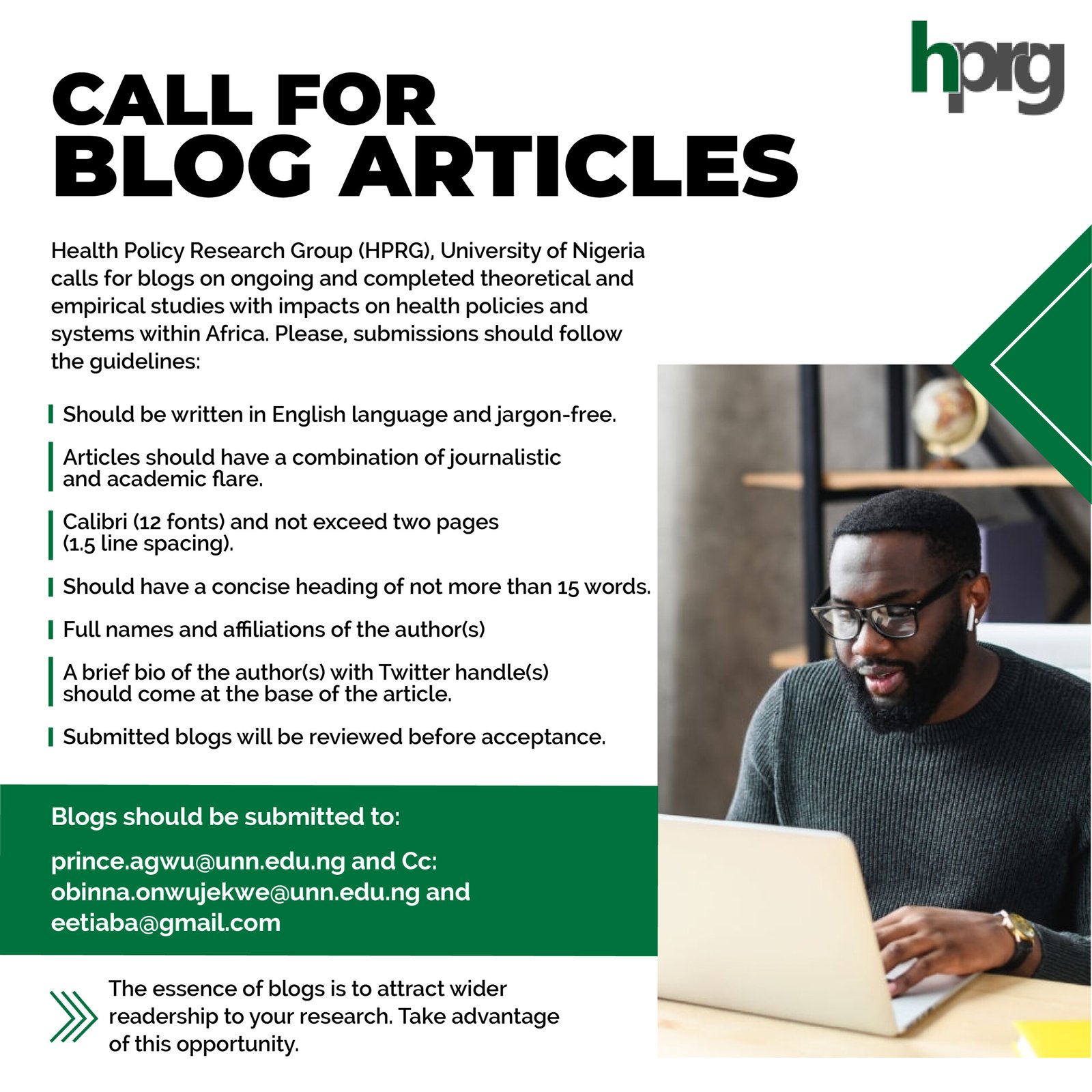
Communique: Coalition speaks tough on health corruption and accountability problems in fulfilment of Nigeria’s health renewal plan
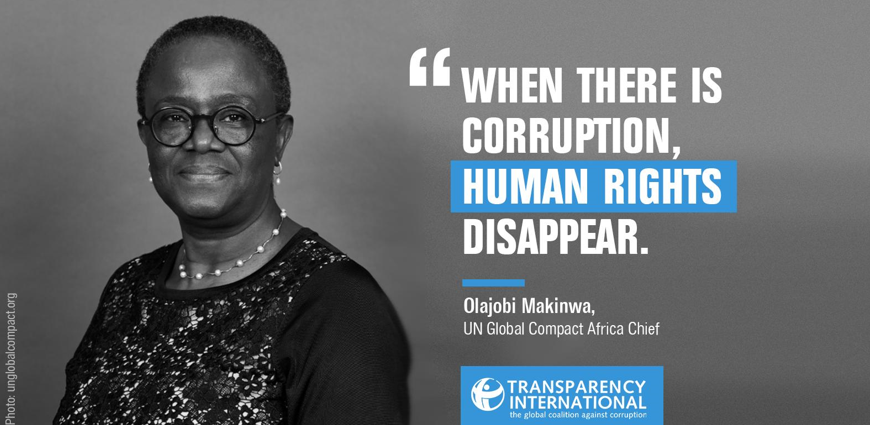
Nigeria’s health sector is on the path of restoring confidence of citizens in its health system. Under the present health leadership, the Health Sector Renewal Compact (HSRC) recognises the importance of accountability as the glue that should firmly hold and drive its social compact with Nigerian citizens. To achieve this, the current leadership must pay attention to cutting-edge evidence that identifies accountability gaps in the health system, their effects on health service delivery and uptake, and how they can be addressed.
Stakeholders have been requested to support the current Nigerian health leadership’s vision of entrenching an accountable and transparent health system. In response to this call, a coalition of health anti-corruption scholars, policymakers, civil society, and health and media practitioners has been established. This coalition known as the Health Anticorruption Project Advisory Committee (HAPAC) is driven by over seven years of research on accountability and corruption in the health sector across sub-Saharan Africa. HAPAC will deploy evidence-based information to support Nigeria’s health leadership towards achieving an accountable health system.
On February 28 and 29, 2024 in Abuja, the coalition met to reflect on the findings from an ongoing study over the past 7 years on health corruption and accountability in Nigeria. The study was presented by the Health Policy Research Group, University of Nigeria (HPRG), and the broader Accountability in Action (AiA) Research Team drawn from prominent scholars within and outside Nigeria. As validated by HAPAC the seven crucial highlights from this study can be seen in the below infographic.
Therefore, HAPAC calls on the leadership of the health system to take concerns about the seriousness of the issues raised and mainstream them into the sector’s accountability agenda. HAPAC has shown commitment by using evidence to point to what the fundamental problems are, firmly encouraging that these fundamental issues must be addressed squarely. Otherwise, any accountability structure leaving them out will be nothing but cosmetic.
Accountability priorities for HAPAC as regards the health sector emphasise three areas which are:
1. Basic Health Care Provision Fund
2. Human Resource for Health
3. Coordination of donors and donors’ resources.
These three areas are critical for strengthening the Nigerian health system and ensuring value for every investment in it.
HAPAC will engage more with the government, leveraging evidence and experience to help achieve an accountable health sector that is transparent, people-centred, and corruption-free.
The three HAPAC accountability priorities will be pivotal to these engagements. To intensify HAPAC’s chase of these priorities, the coalition will expand its network to include membership from the WHO, Finance Ministry, Public Complaints Commission, Consumer Protection Commission, Gates Foundation, Foreign Commonwealth and Development Office, and frontline anticorruption civil societies.
In all, HAPAC uses this opportunity to commend the current health sector leadership for rolling out the much-needed Health Sector Renewal Compact (HSRC), seeking consensus with Nigerian citizens in improving health indices on the road to Universal Health Coverage. Nevertheless, taking out the cogs embodied by corruption and weak accountability remains the most viable path to the fulfilment of HSRC for the Nigerian people.
For correspondence: obinna.onwujekwe@unn.edu.ng and prince.agwu@unn.edu.ng
Download full pdf version of communique
As published by the Guardian
Acknowledgment
-
-
Health Policy Research Group, University of Nigeria (HPRG)
-
Bayero University, Kano, Nigeria (BUK)
-
Nigerian Academy of Science (NAS)
-
Health Reform Foundation of Nigeria (HERFON)
-
International Centre for Investigative Reporting (ICIR)
-
Results for Development Institute (R4D), Nigeria
-
BUDGIT
-
Voice Against Corruption in Nigeria
-
Voice of Nigeria (VoN)
-
London School of Hygiene and Tropical Medicine (LSHTM)
-
Health Systems Research Initiative (HSRI)
-
Foreign, Commonwealth, and Development Office (FCDO)
-
Anticorruption Evidence Consortium – School of Oriental and African Studies (SOAS-ACE)
-
United Nations Office on Drugs and Crime (UNODC)
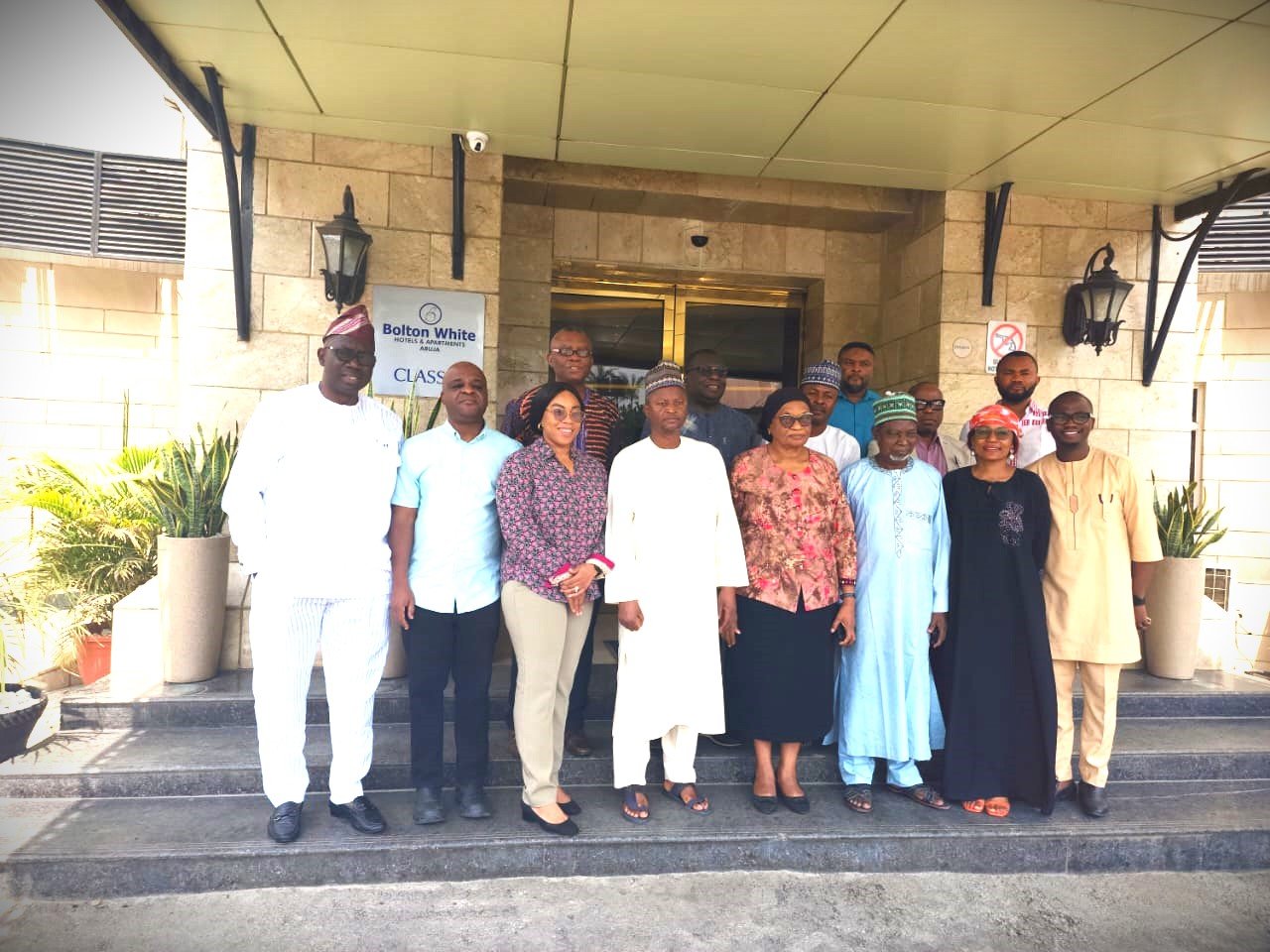 L-R front row: Dr John Onyeokoro (Health Watch Resources Ltd); Prof Muktar Gadanya (BUK); Prof Chinyere Mbachu (HPRG); Prof Isa Abubakar (BUK); Prof Ekanem Braide (NAS); Dr Idris Muhammad (Health Reform Foundation and Chair, HAPAC); Victoria Bamas (ICIR); Iyanuoluwa Bolarinwa (BUDGIT)
L-R front row: Dr John Onyeokoro (Health Watch Resources Ltd); Prof Muktar Gadanya (BUK); Prof Chinyere Mbachu (HPRG); Prof Isa Abubakar (BUK); Prof Ekanem Braide (NAS); Dr Idris Muhammad (Health Reform Foundation and Chair, HAPAC); Victoria Bamas (ICIR); Iyanuoluwa Bolarinwa (BUDGIT)
L-R back row: Dr Tarry Asoka (Independent Consultant); Prof Obinna Onwujekwe (HPRG and Convener, HAPAC); Isiyaku Ahmed (Voice and Accountability Platform); Dr Divine Obodoechi (HPRG); Dr Femi Ajayi (UNODC); Dr Aloysius Odii (HPRG)
HAPAC Members not in picture: Dr Felix Obi (R4D); Runcie Chidebe (Project Pink-Blue); Dr Charles Orjiakor (HPRG); Dr Prince Agwu (HPRG); Dr Eleanor Hutchinson (LSHTM); Prof Dina Balabanova (LSHTM)
This work was supported by a research grant from the Health Systems Research Initiative with funding from the UK the Foreign, Commonwealth & Development Office (FCDO), the Medical Research Council (MRC) and Wellcome, with support from the UK Economic and Social Research Council, (grant no. MR/T023589/1)
Under 50% of Nigerian Medical Doctors Renewed Licence in 2023: Brain drain hits hard (Video)
The Medical and Dental Council of Nigeria has reported that 58,000 of 130,000 licensed medical doctors in Nigeria renewed their licenses in 2023. This may be unsurprising, as studies reported that before the COVID-19 pandemic, more than 80 percent of Nigerian medical doctors and above 50 percent of Nigerian nurses sought work abroad. At the end of 2023, 26,715 Nigerians were in the United Kingdom on health worker-related Visas – a 215 percent increase from 2022. It is also reported that over 110,000 Nigerian nurses are currently practising in the United States of America. This flight of health personnel from Nigeria to several parts of the world is troubling, given the importance of the health workforce to the health of every nation, and to the achievement of Universal Health Coverage, which Nigeria currently lags at under 40 percent.
Recognizing this, The African Health Observatory Platform (AHOP) hosted in Nigeria by the Health Policy Research Group (HPRG), University of Nigeria, with support from the World Health Organisation (WHO) organised a policy dialogue on brain drain of Nigeria’s health workforce, and Africa at large.
This is coming just after the Federal Ministry of Health and Social Welfare has revealed that a National Policy on Health Workers’ Migration has been developed to address the issue of health workers migration in the country. The Deputy Director, Health System Department of Health Planning Research and Statistics, Dr Nwakaego Chukwuodinaka stated this at the policy dialogue on Thursday, 25th April 2024.
Chukwuodinaka said the Ministry has submitted a memo to the Federal Executive Council recently. “What we are requesting is to have a managed migration, and to be able to implement that policy, we need a nod from the FEC. One of the key component of the Health Workforce Policy is to incentivise those that are on ground working, especially those in the rural and underserved areas. Also to sign a pact with the destination countries. The pact is for us to equally gain from them poaching our health workers in the area of bringing technology for us, infrastructure and exchange programmes to help those we are training in-country.”
Read the full news here. You can also find it here.

Survey results on sexual behaviours among secondary school students in Nigeria reveal surprising scales of sexual engagement
By Angela Iwuagwu and Benjamin Uzochukwu
“Researchers can be surprised at their data …” This was said by one of the authors of this blog, who due to Nigeria’s conservative cultural outlook, was surprised at how almost 50% of surveyed secondary school students affirmed sexual activeness. It was even more surprising that some of the sexually active secondary school students were involved in sexual intercourse with the same gender.
In Nigeria, the typical age for secondary school students should be between 10 and 18 years. Those within this age bracket are considered to be adolescents. It is an age of experienced puberty, marked by changes in bodily organs and hormones, early sexual urges, and exuberance.
In typical Nigerian families, parental vigilance increases as soon as children begin to mature into adolescents because they will for the first time be exposed to new feelings, inclusive of sexual feelings and manifestations of exuberance, which could go against laws and moral principles. In fact, vigilance over adolescents in a typical Nigerian setting extends beyond the home to include vigilance by adult figures in schools, neighbourhoods, markets, and worship places. Such scale of vigilance reflects the popular parlance, ‘it takes a community to train a child’.
Adolescents are expected to be steadfast in their training in school, acquire skills, and grow into becoming contributing members of society. Even in societies that support the sexualization of adolescent women, there is an increasing number of intense campaigns against such. Unfortunately, despite the many emphases of small- and large-scale vigilance over adolescents, many do not keep to the expectations of morality society has placed on them or even to the ideals of the diverse campaigns protecting adolescents from sexual engagements.
Sexual behaviours among adolescents in Nigeria pose a significant public health problem
For adolescents, there is just a thin line between risky and non-risky sexual behaviours. This is due to the inability of adolescents to regulate and bear the overall consequences of sexual engagements. It is for this reason, that sexual-related campaigns targeting adolescents mainly advocate abstinence. The most popular one in Nigeria for the past decade is the ‘Zip-UP!’ campaign. However, available statistics indicate that Nigerian adolescents tend not to heed such campaigns, and it is important to understand why and seek alternative approaches.
The fertility rate of 104 births per 1,000 Nigerian adolescent women is among the highest in the world. A study reported that among 428 adolescents in northern Nigeria, condomless sexual intercourse was found to be prevalent in one-third. Besides the spread of sexually transmitted infections (STIs), other concerns being witnessed as a result of this high prevalence of sexual intercourse among adolescents include unplanned pregnancies, truncated schooling, unsafe abortion, psychological worries for both adolescents and their carers, and death. The health challenges posed by sexual behaviours among adolescents extend to their carers, which is why this subject has remained of significant interest to a broad range of stakeholders.
Figures for adolescents’ sexual behaviours in southern-Nigeria are becoming scary
We surveyed 880 adolescents in secondary schools in the south-eastern part of Nigeria. They were between 10 and 19 years of age, drawn from rural and urban divides. We went ahead to conduct group discussions with another 80 adolescents in the region to seek more insights into the results from the survey.
Almost half (47.7%) of the surveyed adolescents confirmed participation in sexual intercourse, and some of them mentioned sexing the same gender, while others claimed to have more than one sexual partner. Substance misuse during sexual intercourse was found to be common at 93%. The misused substances in particular order are alcohol, marijuana, cigarettes, codeine, tramadol, methamphetamine, cocaine, and heroin. Of those who are sexually active, 86% never used condoms, and 75% said they had oral sex after misusing a substance. This group of adolescents also used sex as a means of exchange for drugs.
After sexual activity, less than 25% of the adolescents had confirmed pregnancies. However, adolescents in rural areas were less likely to have an abortion than those in urban areas. The study found poor parenting, exposure to uncensored videos, peer pressure, and limited knowledge of sexual and reproductive health as key factors driving up the numbers. A significant finding was that adolescents from poor homes could engage in sex for basic survival.
We discovered that primary health centres within the adolescents’ neighbourhoods were designed to provide sexual and reproductive health tips and services. Schools were also prepared to offer similar services. Disappointingly, while a good number of adolescents were unaware of such services around them, those that have ever utilised the services complained about stigmatisation and breaches of confidentiality.
A call to action
For several people, the scale of sexual engagement and risky sexual behaviours among adolescents in a typical conservative society like Nigeria may be surprising. The consequences are too significantly destructive, hence the need to take critical actions. First, the availability of sexual and reproductive health services in primary health centres and schools should be widely communicated, and those who are responsible for these services should be trained on the vital skills needed to work in such spaces.
Five important skills would be empathy, non-judgemental attitude, acceptance, respect for confidentiality, and case management. We reckon that these skills are home to the social service disciplines like social work and psychology, and it would be appropriate to begin to take dramatic and urgent measures to strengthen the operations of the social service professionals in health centres and schools.
The relationship between substance misuse and risky sexual behaviours among adolescents has been established. A firm approach should be in place to regulate and criminalize adolescents’ exposure to such substances. This should also include community-led awareness campaigns against substance misuse in relation to risky sexual behaviors.
Finally, we recommend community-led recreational and extracurricular activities that will keep adolescents engaged, and will serve as platforms for targeted health education content. Overall, for sustainable interventions to address these scary figures, government, non-government, and community actors will have significant and concerted roles to play. Efforts should also be made to improve sexual and reproductive health rights among adolescents in Nigeria.
Authors Bio
Dr. Angela Chiebodi Iwuagwu is a Nigerian medical doctor with the Community Medicine department of the University of Nigeria Teaching Hospital, and Fellow of the West African College of Physicians with expertise in public health, particularly endemic and epidemic diseases. With years of experience in sub-Saharan Africa, she has worked in various roles, including senior registrar, implementing public health programmes, and providing healthcare services to mothers and children. She has also worked as a health policy researcher and participated in various health projects.
Prof. Benjamin Uzochukwu is a public health physician and professor at the University of Nigeria, Nsukka. He is a renowned figure in Nigeria and Africa in health policy, systems research, and analysis. He has advised various organisations on implementation research, healthcare financing, and realistic evaluation of health programs. Professor Uzochukwu is a member of several committees, including the Ministerial Expert Advisory Committee on COVID-19 Health Sector Response in Nigeria. He is a Fellow of the National Academy of Science (FAS) and the Academy of Medicine Specialists of Nigeria (FAMedS).
Correspondence: Dr. Angela Iwuagwu
+234 803 528 6369
angelaiwuagwu@gmail.com
Acknowledgment: We thank Dr Prince Agwu for expert review.

Over 7 years of Health Sector Corruption Research Births Coalition for Accountability and Anticorruption in Nigeria’s Health Sector (Video)
HPRG Media
The health sector leadership in Nigeria is keen on ensuring an accountable and transparent health system that is patient-centered and resonates with the well-being of health providers. Stakeholders have been invited to support this ambition. In response to this invitation, a coalition of health anticorruption scholars, policymakers, civil society, and health and media practitioners has been established – The Health Anticorruption Project Advisory Committee (HAPAC). This coalition is birthed by over seven years of research on accountability and corruption in health.
Acknowledgment
Health Policy Research Group, University of Nigeria (HPRG)
Bayero University, Kano, Nigeria (BUK)
London School of Hygiene and Tropical Medicine (LSHTM)
Health Systems Research Initiative (HSRI)
Foreign, Commonwealth, and Development Office (FCDO)
Anticorruption Evidence Consortium – School of Oriental and African Studies (SOAS-ACE)
United Nations Office on Drugs and Crime (UNODC)
Nigeria Academy of Science (NAS)
Health Reform Foundation of Nigeria (HERFON)
Results 4 Development (R4D)
BUDGIT
International Centre for Investigative Reporting (ICIR)
Voice Against Corruption in Nigeria
Voice of Nigeria (VoN)

Is weak governance and lack of accountability fuelling the cholera epidemic in Southern Africa?
By Dorothy Chisare
Southern Africa is facing a severe and preventable cholera epidemic affecting 13 countries. Originating in Malawi’s Machinga District in March 2022, it rapidly spread to South Africa, Zimbabwe, Zambia, and Mozambique by February 2023. While cholera is a waterborne disease that can strike any community, the severity and persistence of the epidemic raises concerns about deeper systemic issues. This blog presents insights on often overlooked factors – weak governance and inadequate accountability structures, as critical contributors to the recurring cholera crisis in Southern Africa.
What should be known about the cholera crisis in the southern region of Africa
Cholera is an infectious disease that causes severe diarrhoea, which can lead to dehydration and even death if untreated. Claiming four million lives globally each year, the disease is spread through eating food or drinking water contaminated by faeces from an infected person. While treatable with oral rehydration solutions and preventable with a two-dose vaccine, cholera persists, highlighting issues of inequity and social development gaps. Communities facing poor living conditions, such as insufficient access to clean water, sanitation, hygiene services, and lacking healthcare infrastructure for treatment or prevention, are particularly vulnerable to infection.
Zimbabwe, previously scarred by one of the world’s deadliest cholera outbreaks in 2008 and another in 2018, reported its first case on February 12, 2023, and now has over 18,000 suspected cases and 71 confirmed deaths as of January 2024.
South Africa, facing its first cholera outbreak since 2003, battled cholera cases linked to travel from Malawi, facilitated by porous borders. The Malawi outbreak, intensified by the impact of Tropical Cyclone Freddy in 2023 which brought heavy rains, floods, mudslides and strong winds, led to displacement and limited access to clean water, and has resulted to 59,000 cases of cholera as of 2024.
In Zambia, the current cholera epidemic is the largest in recent years, with 11,947 infections. The country’s first case is linked to the Mozambique outbreak confirmed in January 2023. To highlight the urgency of the situation, the World Health Organization (WHO) classified the epidemic as a multi-country emergency, indicating the highest level of concern for a health crisis.
Corruption, unaccountability, and weak governance damage public health infrastructures in Southern Africa
A just public health system functions free from corruption, ensuring accountability for all actions and prioritizing the fair distribution of health resources and services among users. However, corruption and unaccountability have significantly worsened in many African health sectors, impeding efforts to contain diseases like cholera. While the cholera epidemic is multifaceted, its roots lie in core issues of poor governance, leading to inadequate sanitation services and limited access to clean water. Legacy issues such as infrastructure neglect, mismanagement, underinvestment, and misallocation of funds culminate a perfect storm of challenges.
The outbreak in Zimbabwe stems from the decay of water and sanitation systems that have surpassed their intended lifespans. Irregular and inadequate water supply, especially in cities like Harare, exacerbates the problem. The local government, responsible for water services, provides only a quarter of the required 1200 megalitres of potable water daily. During water purification shortages, the supply is entirely cut off, and the council blames the national government for a lack of investment. This is due to opposition councils being obliged to navigate through the Zimbabwe National Water Authority (ZINWA), an autonomous government-owned entity managing the country’s water resources. The political obstruction, unclear roles and responsibilities, and ultimately the blame game between local and national authorities, turn clean water into a political pawn and leave citizens to the mercy of inadequate services.
South Africa faces dysfunctional municipalities and inadequate wastewater treatment, resulting in untreated sewage release into water resources. These challenges stem from a lack of accountability, mounting debt, and inadequate infrastructure spending spanning over two decades. The sewage dumping frequently surpasses government quotas. This is often linked to the failure of national and provincial authorities to adequately monitor municipalities. Left to self-report pollution events, municipalities have grossly under-reported them. This raises the question of who is overseeing the overseers.
The crisis is intensified by the increase in underserved households in illegal peri-urban settlements without water connections, leading to poor hygiene practices, as seen in Malawi. Urban informal settlers pay at least double the going rate for water from ‘water kiosks,’ managed by private individuals and ad hoc committees. In these settings, there is a risk of administrative or petty corruption, wherein service providers may be influenced through bribes for preferential treatment.
Similarly, for over two decades, Zimbabwean councils bypass urban planning regulations in allocating residential land, leaving residents with inadequate infrastructure, and relying on contaminated water sources. This negligence echoes the 2003 cholera outbreak in South Africa, triggered by the withdrawal of public services in expanding impoverished informal townships and resulting in 140,000 infections. These failures in urban planning and water policies are deeply rooted in mismanagement, corruption, and a lack of accountability within council systems.
Cholera thrives where corruption and unaccountability persist
Corrupt practices and accountability gaps in the region severely impact public health systems, contributing to infrastructure fragmentation and triggering the cholera crisis. Recognizing accountability as a cornerstone of good governance is particularly crucial. Whether at the state, healthcare provider, or individual levels, accountability serves as a critical tool and ensures that necessary actions are taken for effective responses.
The urgent nature of health emergencies creates opportunities for corruption and unaccountable behaviour, as seen in South Africa’s unmonitored sewage dumping beyond safety limits and insufficient infrastructure spending. This not only contaminates water resources or jeopardizes quality but also establishes conditions favourable for cholera to spread through communities already burdened with systemic failures.
In Malawi, vulnerable communities are exploited to pay exorbitant rates for water from unregulated sources. The lack of oversight and accountability enables individuals or entities to profit from this basic need, exposing marginalized communities to compromised hygiene practices and fostering cholera’s spread.
Urban planning negligence influenced by corrupt practices such as bribery or favouritism within Zimbabwean councils leads to misallocation of residential land and inadequate infrastructure that is not planned for, exposing residents to contaminated water and insufficient sanitation provisions – well known factors for cholera. There is a concerning increase in corrupt allocation of residential stands and lack of transparency from councils, with some houses developed on land above sewer tanks, causing sewage pipes to burst inside several houses. The lack of accountability allows these hazardous conditions to persist without corrective measures.
Addressing these governance gaps is not merely a matter of cholera containment; it is a necessary step toward building resilient health systems capable of withstanding future pandemics. Only through comprehensive reforms and strengthened governance mechanisms can the region hope to break free from the trail of cholera and safeguard the well-being of its communities.
A pathway forward
Cholera is a complex interplay of political and economic factors demanding a blend of vertical and horizontal solutions. Governments need to shift to proactive measures by establishing strong governance and accountability mechanisms before, during, and after any potential outbreaks. A collaborative regional cholera preparedness plan within and between countries, ensures a unified and efficient response. Preparedness plans must embrace the whole of society, from communities, local actors, health systems and government ministries. For instance, responses to the epidemic must extend beyond the health sector, integrating efforts across education, economy, trade, and water sectors.
Assigning clear responsibilities and holding national health authorities accountable for infrastructure maintenance, particularly water treatment and sewage systems creates a proactive environment. This requires monitoring mechanisms like public consultation and appeals for improvements from horizontal actors such as civil society organisations and citizens. To strengthen outbreak response efforts, governments can establish inclusive multi-stakeholder task forces and committees. These groups would provide diverse expertise and resources, contributing to the improvement of public engagement and shared accountability.
During an outbreak, streamlined governance enables rapid response activation and optimal resource allocation. A way to approach this could be an undertaking of a series of visits and consultations with actors at the grassroots to understand the challenges and to revise the approaches accordingly. This consultative policymaking, coupled with media advocacy, can instil confidence in the authorities, attract provisions from the private sector or donors, and lead to significant improvements. Concurrently, strict accountability measures ensure transparent communication and timely actions, pivotal in halting the outbreak’s progression.
In the aftermath of the outbreaks, it is crucial for governance to evaluate the effectiveness of the response, guiding updates to preparedness plans. Holding individuals and institutions accountable for outcomes encourages necessary reforms, breaking the cycle of repeated outbreaks, preventing future epidemics, and mitigating potential pandemics.
About the author
Dorothy Chisare is a Research Officer specializing in African Health Systems within the Department of Health Policy at the London School of Economics and Political Sciences. She is a part of the LSE team working on the African Health Observatory – Platform on Health Systems and Policies (AHOP) hosted by the WHO Regional Office for Africa. She can be contacted at d.chisare@lse.ac.uk X/Twitter: @dorothyct9

Implications of fuel subsidy removal on achieving Universal Health Coverage in Nigeria
By Professor BSC Uzochukwu
Over the years, the government has provided financial support to maintain artificially low prices for petroleum products, particularly petrol and diesel. This practice is implemented to protect customers from the full impact of international oil price variations, which can increase fuel prices. So, since the 1970s, fuel subsidies are payments from the federal government in Nigeria that are used to cover gaps between market price and regulated price. Paying for fuel subsidies generally implies a trade-off between protecting consumers from rising fuel prices and the economic and fiscal implications of continuing to subsidize fuel.
Removing fuel subsidies in Nigeria refers to the government’s decision to end the policy of paying subsidies to oil marketers and importers of petrol. The decision to remove fuel subsidies has been motivated by the need to reduce government spending, promote economic growth, and curb corruption in the oil and gas sector. However, removing fuel subsidies has never been easy. At different times in 1978, 1993, 2003, 2012, 2016, and 2020, fuel subsidy removal attempts were met with stiff resistance from the public.
Surprisingly, on May 29, 2023, President Bola Tinubu at his inauguration as President of the Federal Republic of Nigeria announced the removal of fuel subsidy, leading to about 200% surge in the price of Premium Motor Spirit (PMS). It is expected that money saved from the removal of fuel subsidies will be used to invest in the health sector, which is why there is an emphasis on political will to achieve Universal Health Coverage (UHC).
However, a closer look at the removal of fuel subsidies and implications on the achievement of UHC shows impacts that are multifaceted and complex, with both positive and negative effects. While the positive effects like health insurance expansion, increased funding for health, etc., can only be guaranteed by transparency, accountability, and people-focused governance, the negative effects like increased household expenditure, increased vulnerability, etc., will likely wash away the existing gains towards achieving UHC.
Click to download full presentation
How to cite: Uzochukwu, B. (2023). Implications of fuel subsidy removal on achieving Universal Health Coverage in Nigeria. https://hprgunn.com/implications-of-fuel-subsidy-removal-on-achieving-universal-health-coverage-in-nigeria/
HPRG’s health sector 2023 roundup: Evidence, knowledge, politics
December 2023
The transition to a new government led by President Bola Tinubu with an agenda of ‘renewed hope’ was a significant moment in 2023. It is expected that the agenda drives growth and development in Nigeria, inclusive of the health sector. Health Policy Research Group (HPRG), University of Nigeria, has since the past two decades contributed to Nigeria’s health sector through the generation and implementation of research evidence to significantly inform health policies and practices.
In February 2023, HPRG published a synopsis of the health contents of the manifestos of the top contenders for the presidency. A common argument was that Nigeria’s health sector needed dramatic reforms and investments to attain Universal Health Coverage (UHC). The manifestos also agreed that health-related research would be pivotal to the UHC journey – a commitment that has been restated in the Nigeria’s Health Sector Renewal Plan (NHSRP).
Therefore, ‘this health sector 2023 roundup’ lays before the public, research evidence from some studies conducted by HPRG in Nigeria. It provides in brevity, distilled evidence for policy and practice interest in five areas that include (a) Evidence use by policymakers (b) urban health (c) sexual and reproductive health (d) inefficiencies in health programmes, and (e) corruption and accountability.
The use of evidence by health policymakers
Our work with the Results4Development (R4D) and the Gates Foundation explored the evidence-to-policymaking culture among health policymakers in Nigeria. Although we were more interested in health policymakers’ usage of evidence from mathematical and economic models, we also permitted conversations on other kinds of evidence from qualitative and non-modelling quantitative enquiries.
Generally, we found poor relationships and weak communication between researchers and policymakers, weak translation of evidence for easy understanding by policymakers, as well as poor attitude of policymakers toward seeking for, funding, and making use of research evidence. It leaves us worried that most of policymaking in the health sector may not be tied to evidence, which contrasts best practice. Nevertheless, we found that the Nigeria Centre for Disease Control and Prevention (NCDC) was an exception, especially as evidence was at the core of its engagements in containing COVID-19.
Urban health: Health and healthcare in urban slums
HPRG under the CHORUS Urban Health Consortium has an ongoing large piece of work in Nigerian urban slums, which currently accommodates about 50 percent of the urban population. We have seen first hand the amount of deprivation in slums and the dominance of healthcare by informal providers like Patent Medicine Vendors (PMVs), bone setters, Traditional Birth Attendants (TBAs), herbalists, etc. In some cases, we have found abandonment of health facilities by slum residents for reasons pertaining to the inefficiencies and cost of receiving care in the health facilities and/or the trust and confidence slum residents have over the years built in informal providers.
At the heart of our research is the consensus among formal and informal health stakeholders on the need to pull the informal health providers into the formal health system, while ensuring the effectiveness of catchment PHCs around the slums. We are already working with health authorities in Enugu State to implement this co-created intervention which evidence has shown will strengthen healthcare in slums. Interestingly, we recognise that the Federal Ministry of Health and Social Welfare (FMoHSW) is also thinking in this direction. Thus, we recommend that our intervention can be monitored for feasibility/adoptability, and where practicable, should be scaled.
Transformative approaches to sexual and reproductive health of adolescents
Over 50 million Nigerians are between 10 and 24 years, which is more than a quarter of Nigeria’s population. Yet this population does not receive the amount of healthcare attention it deserves. HPRG in recognising this gap, is working with the International Development Research Centre to pursue a transformative approach that will support adolescents to receive youth friendly sexual and reproductive health (SRH) services in their communities. We are doing this by working with adolescents and community stakeholders in Ebonyi State to further understand the prevalence of the consequences of risky sexual behaviours and identifying how health facilities can function to become attractive to adolescents in need of SRH services.
With our evidence, health workers are currently trained to provide youth friendly SRH services to adolescents. Yet this speaks to the human resource shortage in our PHCs, as none has been seen to have qualified social workers and psychologists. Laboratory professionals are also scarce, leaving us to worry about if PHCs are comprehensively positioned to deliver quality and comprehensive care under one roof.
Health programmatic inefficiencies
Nigeria’s health space considerably enjoys donor-funded programmes. While this is a useful resource to scale up the country’s underfunded health system, it presents the possibility of crisis and anti-development if not managed. Our work on Cross-Programmatic Efficiency Analysis (CPEA) done in partnership with the WHO office in Nigeria and the Strategic Purchasing Africa Resource Centre (SPARC), has exposed defects in the governance arrangement of health programmes, with knock-on effects on health financing, service delivery, procurement, and health information system.
Among several inefficiencies found in the study, fragmentation and duplications in health programmes, misalignment between health programmes and health priorities at subnational levels, lack of sustainable plans for health programmes when donors exit, poor budgeting and procurement practices, weak practices in communication and enforcement of policies, weak accountability mechanisms, and lack of coherence between evidence and policy actions/decision making mar health programmes and the overall health system. This study has developed solutions following root-cause analysis of the identified inefficiencies.
Corruption and unaccountability in the health sector
In the health sector, corruption has been rightly identified as the difference between life and death and a clear case of robbing the sick. An incredible amount of time in HPRG has been spent on studying system-wide and facility-centred corruption using a range of research approaches. We have identified absenteeism, informal payments, employment malfeasance, procurement and health financing irregularities as the most common forms of corruption in the health sector. The prevalence of these corruption concerns especially in primary health, frustrates healthcare for the poor and everyone at grassroots.
We used absenteeism as a case study in a recent publication to show how defective systems encourage and sustain corruption. In the NHSRP, social accountability involving civil societies, citizens, and other non-state actors was emphasized, which aligns with our evidence on grassroots-led anticorruption. In addition, the need to rejig and efficiently communicate health sector-specific regulations; improve workplace satisfaction and welfare; deal with information asymmetry in health facilities through public communication and responsive reporting channels; responsive health authorities to reports from service users and local monitors, and use of evidence to produce a sustainable anticorruption agenda for the health sector, lead our pack of proof-of-concept anticorruption evidence.
Where from here? Looking ahead to 2024
We extend commendation to the health sector leadership for the blueprint embodied by the NHSRP. We recognise the need for finance to drive the plan, which is why we commend states like Borno and Abia, among others, that have kept to the recommended 15 percent benchmark of annual budget for the health sector in 2024. However, we urge that beyond budgeting should be timely release of funds and tracking of funds to guarantee value for money. At the same time, we express concerns about the under 5% to the health sector by the Federal Government, which we fear may mar the lofty ideals of the NHSRP. Notwithstanding, we are of the view that some progress can be made by ensuring that Nigerians get commensurate value for what has been budgeted and evidence from several studies of ours points to what the leadership can do, which include:
-
-
Deliberate and improved inclusion of evidence in policymaking and strengthening relationships between the academia and policymakers, while urging academia to distil evidence in non-technical bits for policymakers.
-
-
-
Aggressively prune ungoverned spaces in the informal health space by mapping and integrating informal health providers into the formal health system, while maximally improving on the efficiency of catchment PHCs within slums and other deprived locations.
-
-
-
Look toward maximising the potentials of PHCs for sexual and reproductive health of young people, and making sure that PHCs are rightly staffed and deliver comprehensive health services inclusive of psychosocial care under one roof.
-
-
-
Pay attention to current research on programmatic inefficiencies in the health system and use the results to squarely address identified lapses in vital areas of governance, service delivery, health financing, procurement, and health information system.
-
-
-
Pursue health-focused anticorruption agenda by addressing management- and facility-centred drivers through health sector specific regulations, curb excessive management discretions of facility managers and health workers, mainstream accountability monitors in facilities, funding, enhanced workplace satisfaction, and enhanced responsiveness of health authorities to accountability concerns from the grassroots.
-




